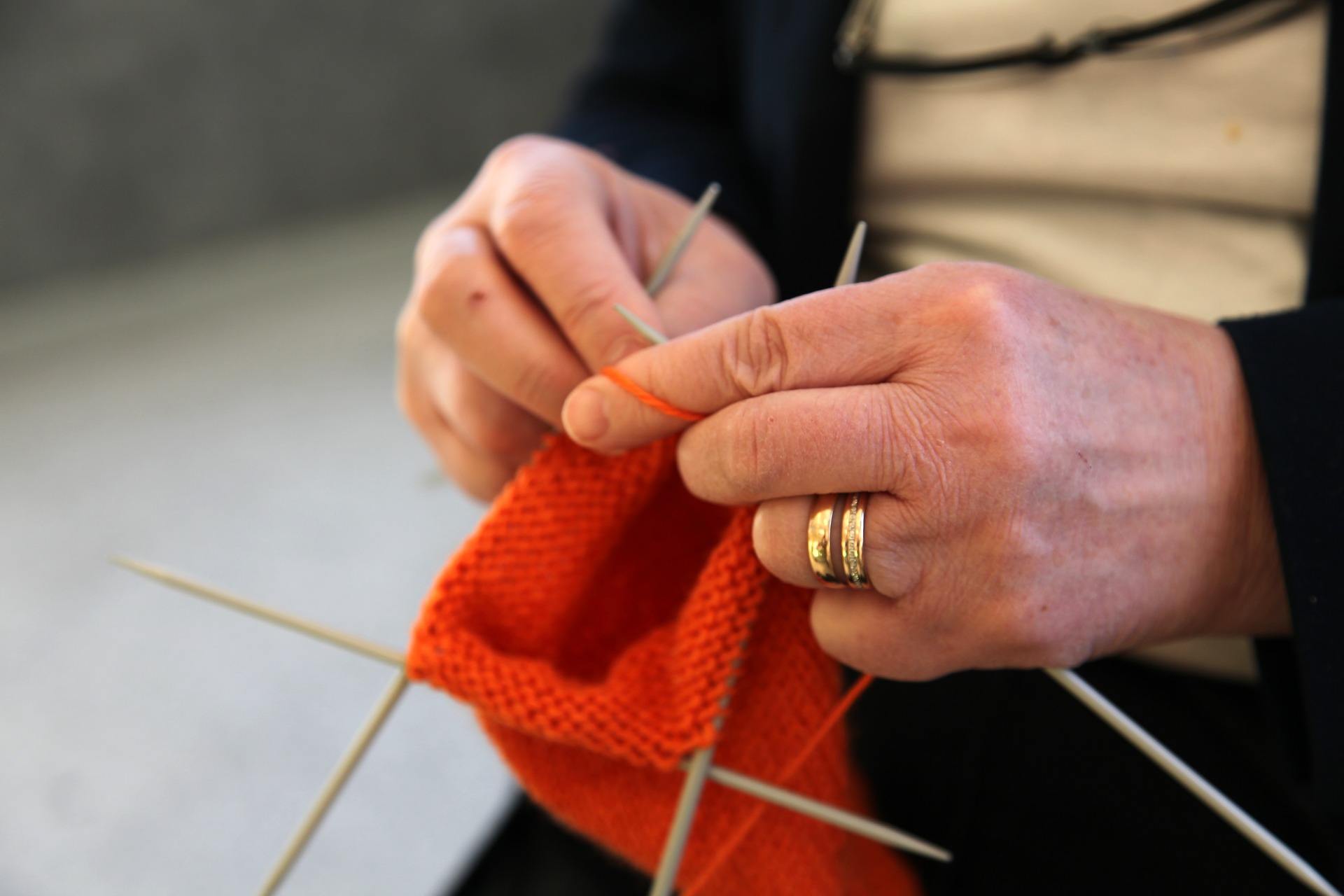
Private duty caregivers can easily identify agitation and restless in the elderly, and if you’ve noticed your elderly loved one fidgeting or demonstrating other restless behaviors, you may have wondered if there was anything you could do to help relieve the situation. In Olive Branch and elsewhere throughout the country, there are definitely some things you can do to help your elderly parent overcome the nervous habits he/she may sometimes exhibit when feeling agitated for some reason.
Why all the restlessness?
Many elderly people who are afflicted with Alzheimer’s or some other form of dementia routinely fidget with their clothing, with buttons, or any other small objects which are close by. This is a nervous habit which is extremely common for many elderly people who are afflicted by dementia, and it is most often manifested in the form of restless hands. In some cases, the nervous fidgeting can be more harmful than just a bad habit, because some individuals will actually begin to pick at their face or at other spots on the body, causing scabs and sores to form as a result.
While not all nervousness can be attributed to Alzheimer’s or dementia, it is one of the more common reasons for constant agitation which shows up as hand fidgeting. Regardless of the actual cause of the fidgeting, there are some things you can do to help channel that nervous energy into something which will avoid any personal harm to your loved one, and which may actually accomplish some good as well.
Sensory Accessories
This might sound like a made-up idea, but there are actually such objects as twiddlemuffs, and they resemble hand warmers which are made of thick yarn. There also usually covered with ribbons, buttons, and a number of other small objects which are ideal for agitated people to fiddle with. They provide a great deal of comfort and even stimulation for people bothered by dementia, and they’ve gotten tremendous reviews from the families of elderly people who have used them.
Healthcare professionals also strongly recommend sensory aids because they’ve seen how effective the objects can be in occupying the attention of elderly persons who constantly fidget with things. As simple and unassuming as they appear to be, these sensory items are extremely effective in occupying the attention of elderly people, and they definitely help to calm the hands of individuals using them.
Believe it or not, all around the world, there are a great many nursing homes and knitting groups involved with knitting up thousands of sensory aids to be used by elderly persons afflicted with dementia or Alzheimer’s. Nursing homes responsible for the care of many elderly patients, frequently receive donations of sensory mats or blankets which have been produced by individuals and groups who are familiar with the soothing effects that these objects can have.
Other causes of agitation
When nervousness and hand fidgeting is not due to dementia, there could be a great number of other causes which are leading your elderly loved one to become more agitated. Moving to a new residence or nursing home will generally bring on agitation or nervousness, as will any changes in their environment which deeply affect them. If any kind of changes has occurred to their caregiver arrangements, that could also bring on agitation.
Your elderly parent may also misinterpret some situations in his/her world and perceive them as threats, and even though you recognized that such threats are non-existent, it may not be as easy for your parent to separate benign and harmful situations. There are also times where it just becomes very confusing to an elderly person trying to understand the changing world around them, and this can lead to fatigue and fear, which is expressed as agitation and nervousness.
How to reduce agitation
If you don’t have any twiddlemuffs handy, the first thing you can do is try to remove stressors from your elderly parent’s surroundings. This might necessitate moving them to a quieter area, or it might just be that you need to reduce their caffeine intake. Sometimes reducing noise or background distractions in their environment can have a calming effect, and sometimes simplifying their daily routine can also calm them down.
Stay in touch with your elderly loved one’s feelings about hunger, pain, thirst, constipation, fatigue, or irritants such as uncomfortable room temperature. Ask them to describe any fears or misperceived threats they have, and be sure to provide opportunities for exercise, because that is one of the best ways of calming down agitation.
Handling agitation and nervousness
Make sure not to become frustrated with your elderly loved one, or show irritation with their fidgeting, because that can worsen the situation. Instead, try to find out what the source of the agitation is by asking calm, soothing questions, and reassuring your parent that they’re safe and that you’ll stay with them until they feel better.
If you loved one feels up to it, engage them in some kind of activity which will take their mind off the agitation, and in general find outlets for their energy that will replace the fidgeting behavior. If normal activities fail to produce the desired results, you should take your loved one to see his/her doctor, so that any physical problems can be ruled out.
